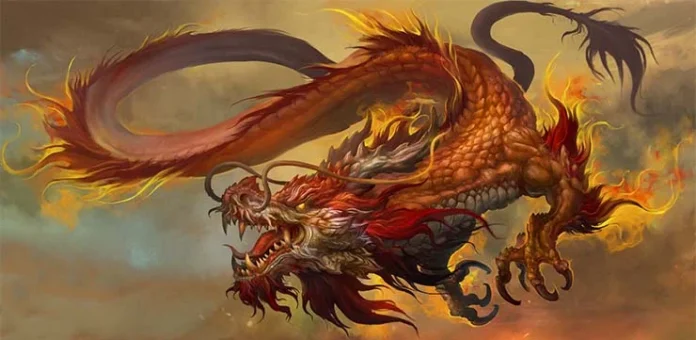In recent years, India has faced several skirmishes with China along the border. These incidents have caused many to wonder why China is being so aggressive. Let’s delve deeper into the reasons behind China’s aggression towards India and other countries.
Woes of Foes: China vs the World
To better understand China’s intentions, it is important to examine the border disputes it has had with various countries. China has had border disputes with the Philippines, Vietnam, Japan, India, Indonesia, Malaysia, South Korea, Singapore, and even Australia. While some may assume that these disputes are over land, the reality is that these are the countries seen as competitors to China and capable of challenging its dominance in the global market.
Unlike full-fledged wars, China tends to focus on skirmishes with other countries. These skirmishes serve to divert attention, create unrest, and make it appear as though there is a danger looming on the horizon. This can take the focus of other countries off their economies and growth, allowing China to continue its dominance in markets.
After 2018, China’s production declined significantly, and the COVID-19 pandemic has led to a decrease in the country’s workforce, which has resulted in an increase in the cost of production. This has hit China’s biggest strength, its mass production, and has impacted its economic backbone.
In addition to this, the biggest industry in China is the export industry, and with the decline in production and the increase in production costs, China’s export industry has been hit hard. As a result, China is trying to divert attention from its domestic issues by engaging in skirmishes with other countries. These skirmishes serve to create unrest and make it appear that there is a danger lurking, which distracts from China’s own economic struggles.
Facing Failure: Zero COVID policy
China recently ended its ‘zero COVID’ policy, which aimed to eliminate all domestic cases of the virus. This policy was implemented through strict lockdowns, travel bans, and widespread testing and tracing measures. While this policy was successful in reducing the number of COVID-19 cases within China, it also faced criticism for its impact on civil liberties and human rights.
China’s ‘zero COVID’ policy has also had significant impacts on its relations with the global community. The strict measures implemented to achieve zero COVID cases have caused tensions with other countries, particularly those that have been impacted by the spread of the virus from China. Additionally, China’s handling of the pandemic and its transparency have been questioned, further damaging its relations with the international community. China is currently facing the decision of whether to prioritise recovering its economy or controlling the COVID-19 spike. This decision could have significant impacts on China’s foreign relations and may be contributing to its aggressive behaviour.
The stock market is also a factor to consider in understanding China’s global aggression. As reported by Livemint, China’s market performance could be the ‘biggest known unknown’ for stock markets in 2023. This uncertainty could be causing increased tensions and aggression from China as it seeks to protect its economic interests. Various Chinese stocks listed on American exchanges were about to be delisted until China allowed American regulators to audit them. China has agreed to the audits. As the policy of strict restrictions is thrown out, China’s economic machinery is bound to start turning again, albeit running on the blood of common Chinese citizens: the real calamity of Xi Jinping’s handling of the pandemic.
For the average citizen of the Chinese Communist Party’s China, the future is bleak. First, the real estate market, which was a safe investment, turned out to be an economic time bomb. Second, the Chinese handling of the pandemic has rendered them lifeless vessels at the behest of their government. They could not move freely for a year, and when they can, they are exposed to the virus all the same. The Chinese vaccines are not working, and the leaders have been eerily quiet.
The ‘zero COVID’ policy has also had a significant impact on China’s economy. The strict lockdowns and travel bans have disrupted supply chains and caused economic downturns in certain sectors.
It is clear that China’s global aggression is driven by a desire to protect its economic interests and maintain dominance in the global market. The decline in production and increase in production costs, as well as the impact of the COVID-19 pandemic on the workforce, have caused significant challenges for the country’s economy. As a result, China has engaged in skirmishes with other countries, particularly those seen as competitors, in an effort to distract from their own domestic issues and protect their economic interests.
The ‘zero COVID’ policy, while successful in reducing the number of COVID-19 cases within China, has also faced criticism for its impact on civil liberties and human rights and has damaged relations with the international community. As China navigates the aftermath of the policy and its economic struggles, it will be important to consider the impacts on the country’s relations with the global community and its economy.
-The writer is a Defence and Aerospace Analyst. The views expressed are personal and do not necessarily reflect the views of Raksha Anirveda
-The author is a Defence, Aerospace & Political Analyst based in Bengaluru. He is also Director of ADD Engineering Components, India, Pvt. Ltd, a subsidiary of ADD Engineering GmbH, Germany. You can reach him at: girishlinganna@gmail.com. The views expressed are personal and do not necessarily carry the views of Raksha Anirveda






